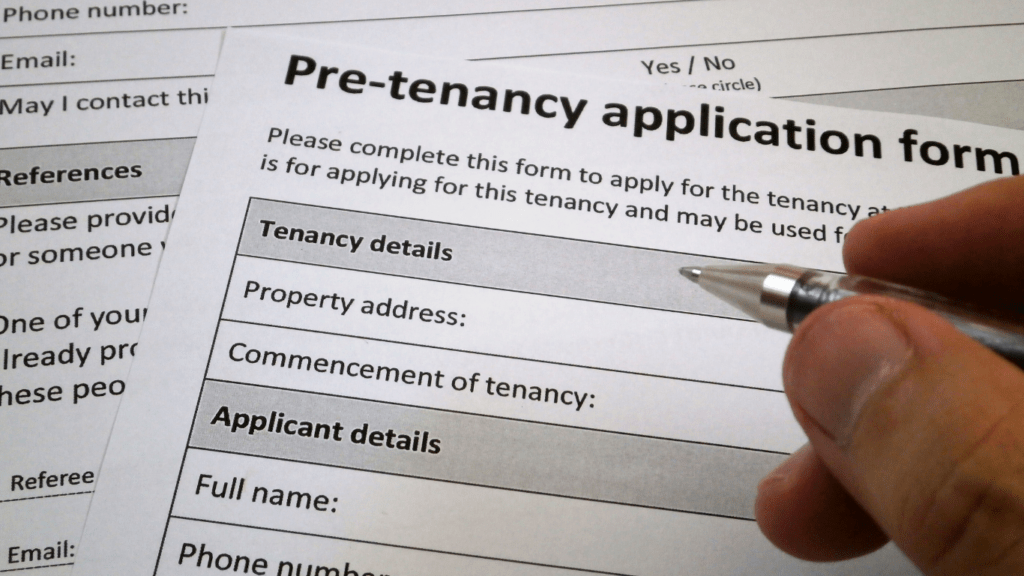Importance Of Finding The Perfect Tenants
Securing the right tenants safeguards the property’s condition and ensures a stable rental income. Tenants who respect lease terms, pay rent on time, and maintain the property reduce financial and maintenance risks.
Irresponsible tenants can lead to late payments, property damages, or even legal issues. For instance, unresolved disputes or unpaid rent may disrupt cash flow, creating additional stress and expenses.
Finding ideal tenants minimizes vacancy periods, as reliable occupants are more likely to honor lease terms and renew contracts. This consistency improves long-term profitability and reduces turnover costs.
Effective tenant selection also fosters positive landlord-tenant relationships. Cooperative tenants simplify communication, making property management more efficient and stress-free.
Setting Clear Rental Criteria
Establishing clear rental criteria simplifies the tenant screening process and attracts applicants who meet your expectations. Consistency ensures fairness and protects against legal challenges.
Screening Standards
I review applications based on consistent, measurable screening standards. These include prior rental history, criminal background checks, and employment verification. For rental history, I look for references indicating timely payments and positive interactions with landlords. I avoid applicants with recent evictions or unresolved landlord disputes. Criminal checks focus on offenses relevant to safety or property risks within the past five to seven years. Employment verification confirms stable income and job longevity, ensuring candidates can reliably pay rent.
Financial Requirements
Applicants must meet specific financial benchmarks to show they can afford the rent. I set a rent-to-income ratio, typically 30-40% of gross monthly income. Proof of income, such as pay stubs or tax returns, validates this requirement. Credit score evaluation helps assess financial responsibility. I typically seek a score of at least 620, though I may review lower scores for applicants with strong income or rental history. Security deposit requirements cover potential damages or lease violations.
Marketing Your Rental Property
Attracting quality tenants begins with effective marketing. Using strategic methods ensures your rental property reaches the right audience while maximizing its appeal.
Writing An Effective Listing
Well-crafted listings grab tenant attention and highlight a property’s best features. Include essential details like:
- monthly rent
- security deposit
- lease length
- property type
e.g., apartment or single-family home. List amenities such as parking spaces, in-unit laundry, or proximity to schools. High-quality photos showcase the property’s condition and make your listing stand out. Concise yet descriptive language creates interest and avoids ambiguity.
Choosing The Right Platforms
Advertising on the right platforms increases visibility among ideal tenants. Use popular rental listing websites like Zillow, Apartments.com, and Realtor.com for broad exposure. Leverage local community boards or Facebook Marketplace for neighborhood-specific renters. Incorporate targeted ads on social media platforms to reach potential tenants in specific demographics or locations.
Tenant Screening Process

Screening tenants thoroughly helps find reliable renters while reducing risks. I use a structured approach to tenant evaluation, focusing on critical elements for assessing applicants.
Background Checks
I examine applicants’ criminal and eviction histories through a detailed background check. Criminal records show offenses that might affect property security, while eviction records reveal past rental issues. States like California or New York may regulate screening practices, so I ensure compliance with local laws.
Credit Checks
I review credit reports to assess applicants’ financial responsibility. A strong credit score, typically above 620, signifies consistent payment behavior. I also analyze debts, delinquencies, and credit utilization rates to gauge tenants’ ability to meet rental obligations. For added accuracy, I request direct written authorization before conducting credit inquiries.
References And Interviews
I contact prior landlords and employers to verify character and reliability. Landlord references confirm payment timeliness, property care, and lease adherence. Employer references validate job stability and income consistency. During interviews with tenants, I clarify lease rules and assess communication to ensure a good fit.
Red Flags To Avoid
Identifying problematic applicants during the screening process helps prevent future issues. I focus on these key red flags to protect my property and ensure a stable tenancy.
- Incomplete Applications
Missing critical information, like employment details or rental history, suggests a lack of transparency. I prioritize candidates who provide full, accurate documentation. - Poor Credit History
A low credit score or records of overdue debts can indicate financial instability. I review credit reports for consistent patterns of late payments or high debt-to-income ratios. - Frequent Moves or Short Tenancies
A history of frequent relocations without valid reasons may reflect unreliability. I investigate reasons for short tenancies directly with prior landlords to verify consistency. - Eviction Records
Past evictions show a significant risk. I thoroughly review eviction histories, focusing on reasons like non-payment or lease violations. - Criminal Background Issues
Convictions for property-related crimes or offenses endangering safety raise concerns. I ensure compliance with local laws while rejecting applicants posing safety risks. - Negative Landlord References
Reports of damages, lease-breaking, or conflict with neighbors from prior landlords signal potential problems. I prioritize applicants with positive references. - Unstable Employment
Gaps in employment or inconsistent work history suggest financial unpredictability. Verifying current employment and income stability is critical. - Misrepresentation in Information
False or exaggerated claims, like fictitious references or inflated income, highlight dishonesty. I cross-check all details for accuracy. - Reluctance to Undergo Screening
Resistance to background checks or reference verification shows unwillingness to comply with standard processes. I treat hesitancy as a major warning sign.
Avoiding these red flags ensures I secure trustworthy tenants, reducing risks like property damage and financial loss.
Building A Positive Landlord-Tenant Relationship
Creating a strong landlord-tenant relationship ensures smooth property management and tenant satisfaction. This relationship fosters mutual respect, reduces conflicts, and encourages long-term tenancy.
Clear Communication
Regular, open communication builds trust between landlords and tenants. I provide my tenants with multiple contact options, like email and phone, to ensure they can easily reach me. Prompt responses to tenant inquiries, such as maintenance requests or lease clarifications, show reliability and professionalism. I also share important updates, like scheduled repairs or changes in policies, to keep tenants informed. Clear communication avoids misunderstandings and helps resolve potential issues quickly.
Setting Expectations Early
Clearly defined expectations upfront minimize confusion and disputes later. I outline essential lease terms, including rent payment deadlines, property maintenance responsibilities, and rules regarding noise, pets, or subletting, before tenants move in. A written copy of house rules and a detailed lease agreement provide tenants with reference points for compliance. During lease signing, I explain my policies around late fees, security deposit conditions, and maintenance procedures to align tenant expectations with property management standards.


 Leila Hamilton played a key role in shaping Mode Key Homes, contributing her expertise in real estate trends and sustainable housing. Her dedication to delivering insightful content ensures that homeowners, investors, and industry professionals stay informed about market developments and innovative property solutions.
Leila Hamilton played a key role in shaping Mode Key Homes, contributing her expertise in real estate trends and sustainable housing. Her dedication to delivering insightful content ensures that homeowners, investors, and industry professionals stay informed about market developments and innovative property solutions.